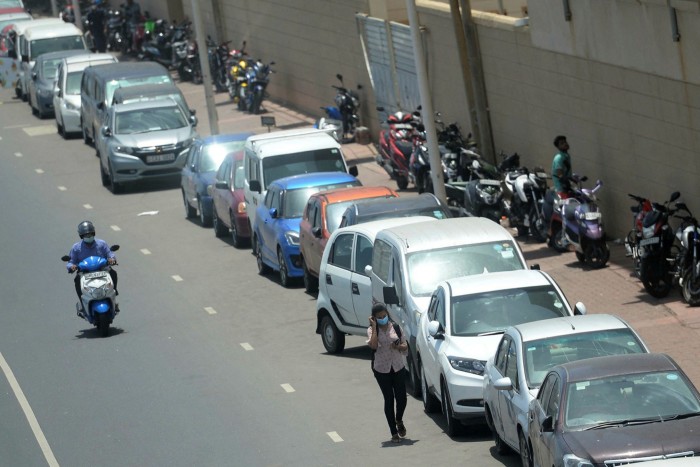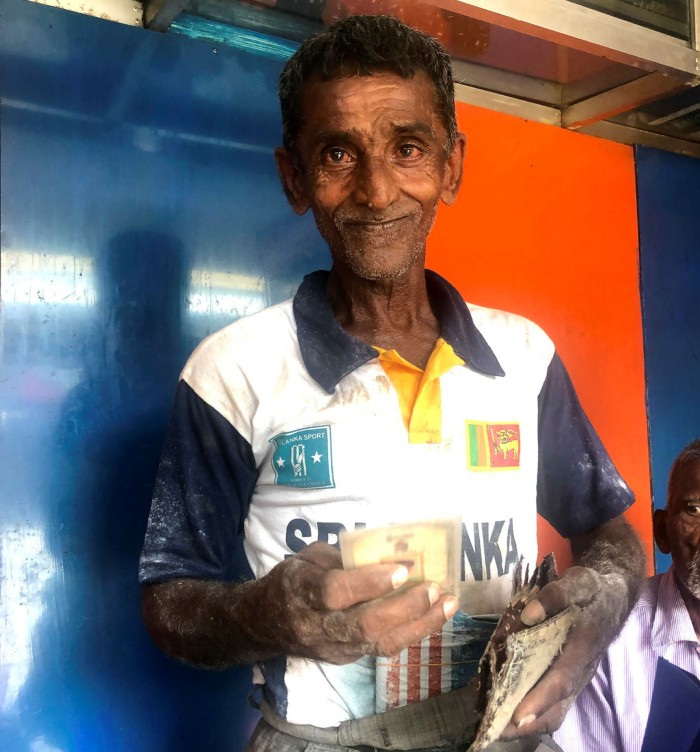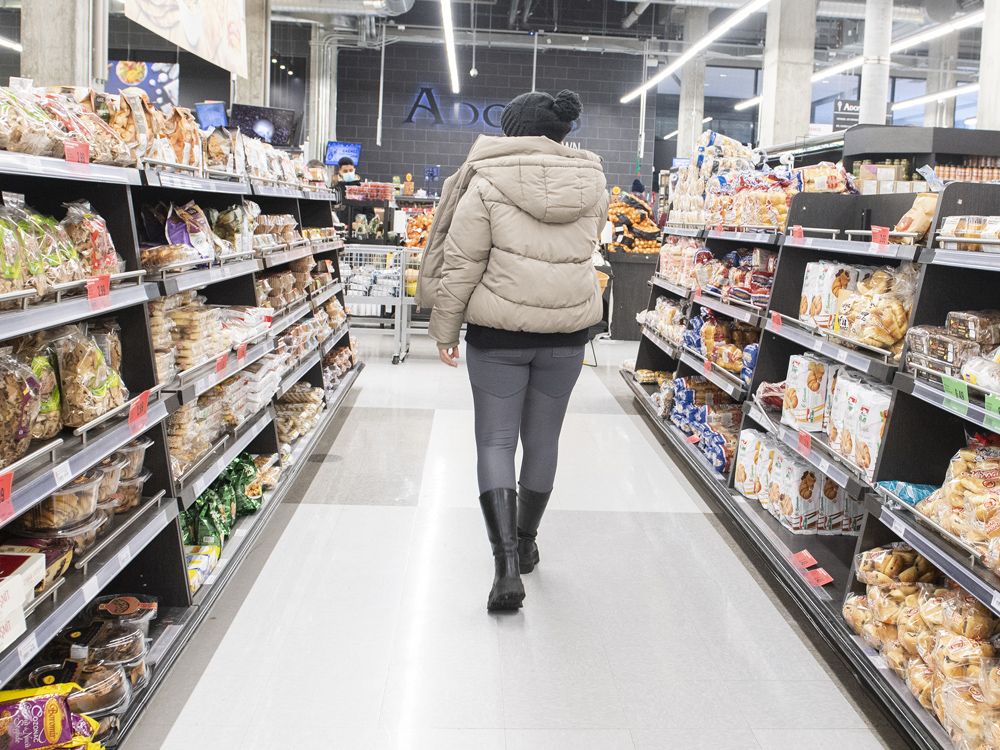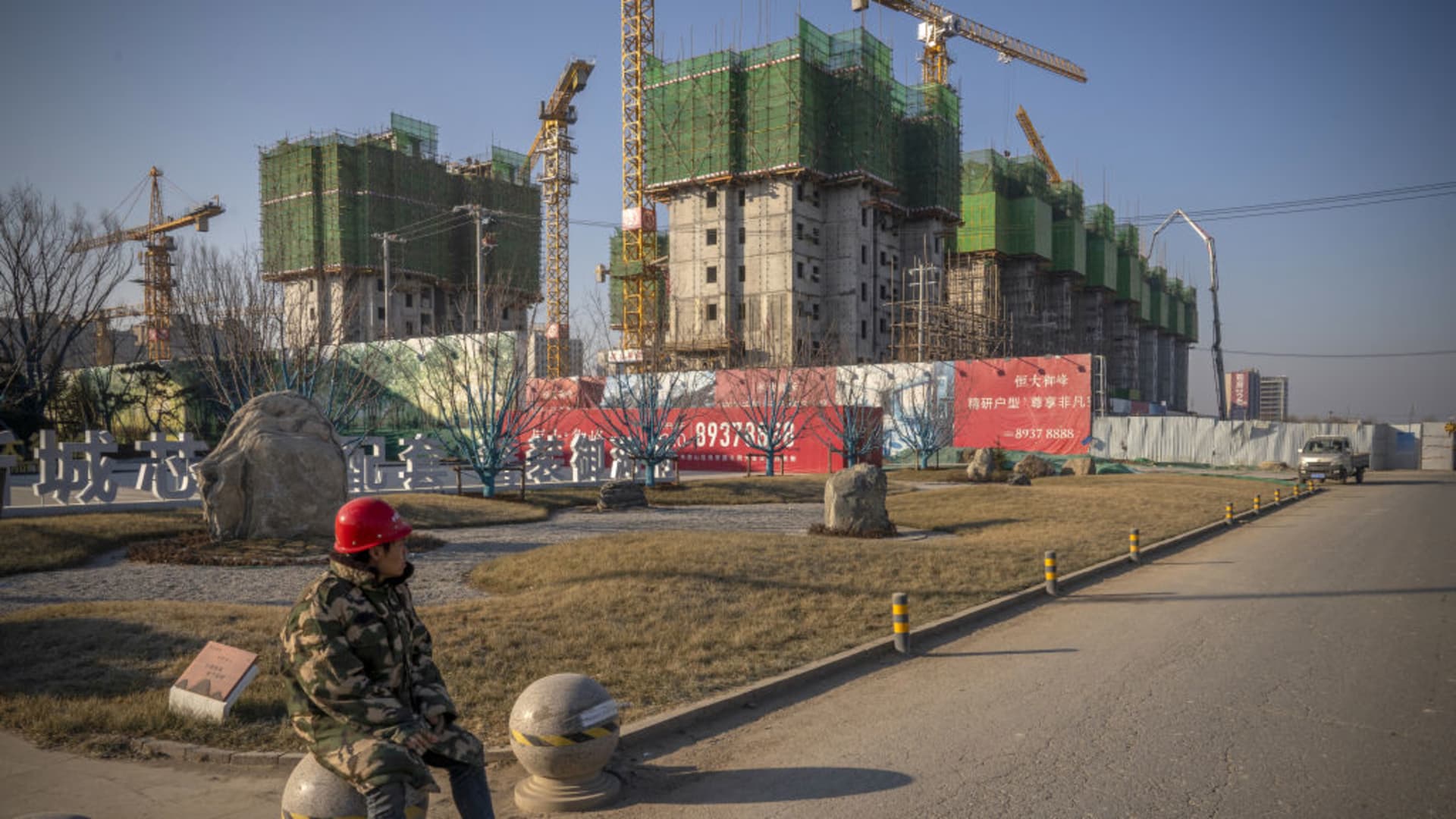[ad_1]
Earlier than Sri Lanka’s financial system collapsed, 50-year-old Nazir would spend scorching sizzling days hauling carts filled with rolls of material, stacks of coconuts and sacks of garlic by means of the slim streets of Colombo’s Pettah market.
Now, carrying a black cap, T-shirt and gray trousers, Nazir sits idle in entrance of dozens of empty carts, listening to speeches on his cell phone. He turns up the amount and factors to the display screen: “Aragalaya!,” referring to Sri Lanka’s well-liked revolt that ousted its president final week.
On a very good day, Nazir used to make the equal of $8, nearly sufficient to feed his household of six, for which he’s the breadwinner. “Now, the enterprise is useless,” he stated. If he will get no extra work right this moment, he’ll return dwelling with lower than a greenback in his pocket.
Sri Lanka’s financial collapse has been blamed on former president Gotabaya Rajapaksa, who flew to Singapore after initially fleeing the nation on a navy jet to the Maldives as a wave of protests rocked the island nation.
Demonstrators had been livid on the president for borrowing closely to construct Chinese language-backed tasks and his eccentric policymaking, which included a ban on fertiliser imports.
Erratic financial administration was compounded by a drop in tourism income due to the coronavirus pandemic and the conflict in Ukraine, which triggered Sri Lanka to default and despatched its foreign money tumbling.

Sri Lanka’s debt pile stands at $51bn, simply over half of which is owed to bilateral and multilateral lenders together with China.
The financial fallout has had devastating penalties. “My household is skipping meals,” stated Nazir. “At dinner, we share items of bread with coconut sambal. I take advantage of firewood to prepare dinner as a result of there isn’t any gas and no kerosene.”
Tales like Nazir’s reverberate throughout the Pettah market, which was once a teeming maze of clothes boutiques and stalls promoting the whole lot from the most recent electronics and dish washing liquid to spices and low.
However the half-empty streets surrounding the nation’s most necessary market, set immediately behind the Colombo port, are a sign of a failing Sri Lanka, which has been battered by hovering costs, rising unemployment, poverty and starvation.
With international foreign money reserves depleted, the nation of 22mn has run out of cash to import gas, resulting in queues kilometres lengthy at petrol stations. The gas scarcity has successfully pushed many individuals out of labor and compelled the nation’s colleges, places of work and corporations to close.
Throughout the market, MT Niyas, 55, drinks his second espresso of the day at Fortunate Cool Spot, a café serving labourers with buns, sizzling drinks and cigarettes bought individually.
His sunburned physique coated from head to toe in flour, Niyas stated his each day wage for carrying sacks on his again had greater than halved to SLRs2,500 ($7) as vehicles stopped coming, whereas bus fares doubled to 70 rupees.
“I’ve been working right here since 1981 and that is the worst it has ever been,” stated Niyas. “It’s good that the outdated president is gone. All we ask of whoever takes his place is that we are able to have three full meals a day. It might’t be that tough!”

Nisham, the bearded 26-year-old proprietor, chimes in as he clears tables for brand spanking new prospects, returns change and pours recent tea: “Employees would pop in perhaps 10 occasions throughout an extended day for a fast tea or to talk. Now, they arrive by perhaps twice a day.”
He rattles off staggering value will increase within the final quarter: the worth of milk powder trebled to SLRs3,000 per kg, whereas these of sugar and even tea, which Sri Lanka exports throughout the globe, have greater than doubled.
Nisham speaks brazenly about his hatred for the Rajapaksa household, who dominated Sri Lankan politics for many years. However there’s additionally a touch of damage satisfaction, echoed in lots of different conversations. “We now have many pure sources in our stunning nation: tea, rubber, espresso, gems,” he stated. “We must always have the ability to do higher than this.”
He and his fellow shopkeepers complained that shadow brokers had stepped in to fill the void after banks stopped lending cash. A 65-year-old lady named Aruna, who sells curry leaves, stated she borrowed SLRs10,000 to maintain her enterprise afloat. However she has to pay again SLRs1,000 a day for 12 days.
Day labourers akin to these at Fortunate Cool Spot are among the many hardest hit, however they’re hardly an exception. The World Meals Programme stated 3mn persons are receiving emergency humanitarian support after meals inflation hit 80 per cent final month. Virtually 90 per cent of all households skip meals or are skimping to make meals last more, the organisation added.
Afzal Fasehudeen, a building engineer who got here to Pettah to replenish on leeks and carrots, had little question about who was in charge for the disaster.
“This entire demise was attributable to large mismanagement and a complete lack of correct planning. The Rajapaksas began building tasks proper, left and centre — that’s ridiculous,” stated Fasehudeen.
With the development growth screeching to a halt, Fasehudeen stated that he and plenty of of his buddies who completed college two years in the past had been planning to go away the nation.
“My firm could go bankrupt quickly. I don’t wish to go away, but when nothing modifications over the subsequent few months I’ll attempt to discover a job in one of many Gulf international locations,” stated Fasehudeen.
“All the things goes up — however not revenue. Individuals are indignant.”
[ad_2]
Source link








